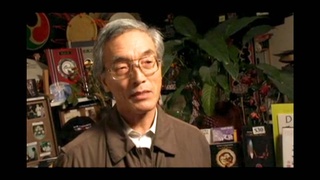Interviews
Taiko's sounds as Japanese cultural tradition (Japanese)
(Japanese) I am not too sure that the taiko we play is traditional (authentic). Perhaps, it is not really traditional, you know. This started about 50 years ago as a form of Kumi-daiko and there were all kinds of explanations attached to the playing. Some would say it started 300 years ago and others would day 500 years ago. Even so, I don’t think any group has really preserved the traditional sound. And, you know, it is only in the last 50 years that taiko playing has become popular. What do they mean when they say keeping the tradition? Is it the sound, or what? I suppose it’s the sound. Taiko can bring out lots of emotion and empathy to those who are listening. I guess that’s all that counts, you know.
Date: April 1, 2005
Location: California, US
Interviewer: Ann Kaneko
Contributed by: Watase Media Arts Center, Japanese American National Museum.




